What is Lead Generation in Digital Marketing? Understanding the Basics
Lead generation in digital marketing has become a foundational element for business growth. It’s the process of attracting and converting potential customers into qualified leads who are genuinely interested in your products or services. Successfully generating high-quality leads is vital for nurturing relationships that turn prospects into loyal customers and advocates.
However, businesses often face challenges in identifying the right target audience, creating compelling and relevant content, and maintaining consistent engagement throughout the customer journey. Without a strategic approach, the process of generating leads can feel overwhelming and ineffective.
This blog explores actionable strategies to master marketing lead generation in digital marketing while incorporating techniques like understanding consumer psychology, personalization, and lead nurturing to drive success.

How to Align Content Strategies with Lead Generation Goals
Understanding and aligning content strategies with lead generation in digital marketing goals is crucial for success. For instance, if your target audience is small business owners, your content should focus on practical, actionable insights—such as tips for maximizing limited budgets or success stories from similar businesses.
This approach ensures that your content resonates with their specific challenges, making it more likely to attract and convert leads effectively. Instead of generic content, think of it as crafting a personalized solution for your audience’s unique needs.
- Define Clear Objectives: Pinpoint what you want to achieve. For instance, HubSpot’s research found that businesses prioritizing lead generation in digital marketing objectives experience 20% higher conversion rates than those without clear goals.
- Understand the Buyer’s Journey: Align content with the stages of the buyer’s journey. A blog addressing FAQs attracts awareness, while case studies help in the decision stage. 70% of consumers trust content that answers their specific queries.
- Leverage Data Insights: Tools like Google Analytics reveal what resonates with your audience, helping refine your lead generation in digital marketing strategy.
By aligning your content strategy with these goals, you not only attract the right audience but also guide them smoothly through their journey.
What Role Does Consumer Psychology Play in Lead Generation?
Understanding consumer psychology unravels the “why” behind buying decisions, turning interactions into opportunities.
For example, consider a coffee shop offering a loyalty program where every 5th coffee is free. This taps into the psychological principle of “reciprocity,” where customers feel encouraged to return because they perceive a reward waiting for them. By recognizing the “why”—customers value feeling rewarded and appreciated—the coffee shop turns each interaction into an opportunity to build loyalty and increase sales.
- Appeal to Emotions: According to a Harvard Business Review article, 95% of purchasing decisions are subconscious, driven by emotion. Content that resonates emotionally inspires action.
- Simplify Choices: Too many options can overwhelm prospects. A restaurant can highlight the chef’s specials to guide their customer’s decisions.
- Use Social Proof: Testimonials and success stories act as mirrors, showing potential customers what they could achieve. Social proof increases trust by 83%, as reported by BrightLocal’s consumer review survey. A real estate agency showcased client success stories, significantly boosting their Social Media Lead Generation efforts.
By weaving consumer psychology into your strategies, you create a deeper connection with your audience, enhancing engagement and conversion rates. This applies to all the Marketing Channels including social media lead generation and SEO leads.
What is Personalization in Lead Generation? How to Improve Your ROI
Personalization is the golden ticket in marketing lead generation. It’s like tailoring a suit—a perfect fit makes all the difference.
- Relevance: Personalized emails or offers address specific challenges, making the recipient feel understood.Personalization can deliver five to eight times the ROI and boost sales by 10%.
- Better ROI: Concentrating efforts on high-value accounts optimizes resources and delivers stronger results.
- Stronger Relationships: Tailored communication fosters trust and long-term loyalty. Following up with a webinar with a detailed action plan for participants shows genuine care and improves retention by 20%.
By focusing on personalization, businesses can transform their marketing into a meaningful conversation rather than a one-size-fits-all broadcast. Additionally, this approach can significantly enhance SEO leads, as personalized content can boost search engine visibility and engagement, driving higher quality organic traffic.
How Automation Tools Improve Lead Generation in Digital Marketing
Automation tools are the unsung heroes of scalable marketing lead generation. They’re like having an extra set of hands that work tirelessly in the background.
- Email Nurturing: Tools like HubSpot and Mailchimp help craft tailored email sequences. For instance, a retail business implemented an automated post-purchase email series that included product tips and follow-ups. Campaign Monitor revealed that automated emails generate 320% more revenue than non-automated emails.
- CRM Integration: Platforms like Salesforce centralize customer data, enabling more targeted outreach. Imagine being able to see a lead’s interaction history and tailor your next touchpoint accordingly. This personalized approach can increase conversion rates by up to 36%.
- Performance Tracking: Real-time analytics show what’s working and where to pivot. For example, if a lead consistently engages with pricing pages, automation can target them for personalized follow-up, increasing the likelihood of conversion.
Emerging Trends in Lead Generation for Digital Marketing
AI and machine learning are revolutionizing marketing lead generation. Predictive analytics, chatbots, and personalized content delivery are some of the advancements reshaping the industry:
- AI-Driven Personalization: AI analyzes user behavior to recommend highly tailored content.
- Chatbots for Engagement: Chatbots powered by natural language processing engage leads instantly, answering queries and qualifying prospects in real-time.
- Predictive Analytics: By analyzing historical data, predictive tools identify which leads are most likely to convert, enabling marketers to focus their efforts strategically.
By embracing these technologies, businesses can stay ahead of the curve and enhance their lead generation strategies.
Conclusion: Mastering Lead Generation for Business Success
Mastering marketing lead generation requires empathy, strategy, and the right tools. By aligning content strategies with lead generation goals, leveraging consumer psychology, and adopting personalized approaches, businesses can create a powerful pipeline of engaged prospects.
Tools like social media lead generation enable brands to connect with audiences on platforms where they spend the most time, while optimizing for SEO leads ensures greater visibility in search results. With the added potential of AI and machine learning, businesses can elevate these strategies even further.
After uncovering the psychology behind effective lead generation, it’s time to level up your game. Dive into the world of Inbound Leads and learn how to attract and convert prospects using compelling content, smart SEO, and strategic social media tactics. Explore more in our next blog!

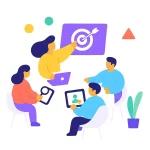
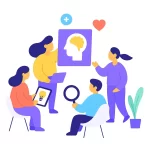
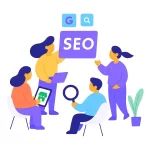

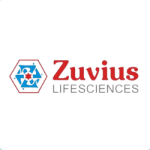




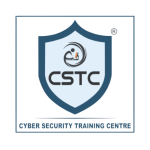




Your blog post was really enjoyable to read, and I appreciate the effort you put into creating such great content. Keep up the great work!
This is the kind of content I love to read.
Thanks for sharing your thoughts, this helped me a lot.
Thank you for providing a positive and constructive space for discussion It’s refreshing to see a blog with a kind and respectful community
Wow, I had never thought about it in that way before You have really opened my eyes to a new perspective Keep up the great work!